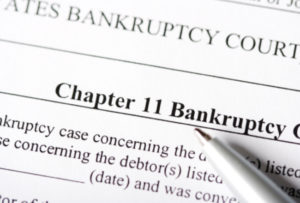Choshen Israel LLC, a Sullivan County business implicated in a $30 million investment swindle, has declared bankruptcy.
Choshen, of Loch Sheldrake, was formed in 1999 by Aaron D. Fischman to raise capital for Cardis Enterprises International, a Dutch startup technology firm.

In 2018, former New York attorney general Barbara Underwood sued Cardis, Choshen, Fischman and other individuals for securities fraud. In 2020, Attorney General Letitia James indicted Fischman on charges of securities fraud, grand larceny, money laundering and a scheme to defraud.
Cardis claimed to have patented technology that would cut merchants’ credit card fees by bundling multiple transactions under one fee.
Investors bought at least $30 million in shares in Cardis, based on representations that that startup had lined up partnerships with prominent companies and was on the verge of taking the company public or selling it.
But the partnerships had never advanced beyond preliminary discussions, according to the state, there was no impending initial public offering or buyout, and Cardis had failed to maintain basic financial records.
Fischman, according to the criminal case records, diverted more than $22 million of investor money to his personal bank accounts, family members and charities.
Last year Fischman, of Woodmere, Nassau County, pled guilty to two felonies. This past February, he agreed to no longer sell securities and pay $2 million in restitution, as part of his criminal plea agreement and to settle the civil case.
Choshen petitioned for Chapter 11 bankruptcy protection on Aug. 2.
It’s downfall “is directly related to its relationship with Cardis,” Lawrence Katz, an attorney and member of the LLC, stated in an affidavit.
Fischman was Choshen’s CEO before the bankruptcy petition was filed, he said, and has a history of bringing successful initial public offerings through Choshen.
Startups are extremely high risk, he stated, but if they take off “investors stand to gain multiple times the value of their investment.”
Investor funds paid for expenses, such as salaries, at the Cardis office in Nassau County; funds sent to Cardis in the Netherlands, and fees retained as Choshen’s profits, according to the affidavit.
“There is no genuine claim that Cardis did not develop what it had promised to develop,” Katz stated. “There is no genuine claim made that investors did not receive the shares they bargained for.”
The Cardis startup did not proceed to a successful initial public offering, he said, and “unhappy investors” complained to the attorney general.
Fischman “maintained his innocence,” according to Katz, but settled the cases “in the interest of avoiding the uncertainty of litigation and trial.”
He said Fischman “is taking the responsible step of winding down” Choshen and has pledged to pay as much as 10% to each valid creditor as long as the dissolution of the company remains in bankruptcy as a Chapter 11 reorganization case.
Choshen has $50,000 or less in assets, according to the petition, consisting of Cardis shares where the value is unknown. It lists more than $2.6 million in liabilities, including $2 million owed to New York State, $302,900 to members of a Brooklyn family that it disputes, and $375,000 to America Express that is disputes.
Katz and his law firm also were named as defendants in the state’s civil case. He was Choshen’s in-house counsel, according to the civil complaint, controlled a number of Cardis bank accounts, and aided in Fischman’s theft.
Katz denied any wrongdoing in a motion to dismiss the complaint.
Nothing indicates that he did anything “but follow the lawful directions of his clients,” the motion states. The allegations are described as deceptive and lacking in detail, and in one instance “the point of the paragraph was not so much to allege anything but to smear Katz.”
On Aug. 3, the day after the Choshen bankruptcy petition was filed, Manhattan Supreme Court Justice Robert R. Reed heard oral arguments on motions by Katz and other defendants to dismiss the civil charges. The judge denied Katz’s motion.






















